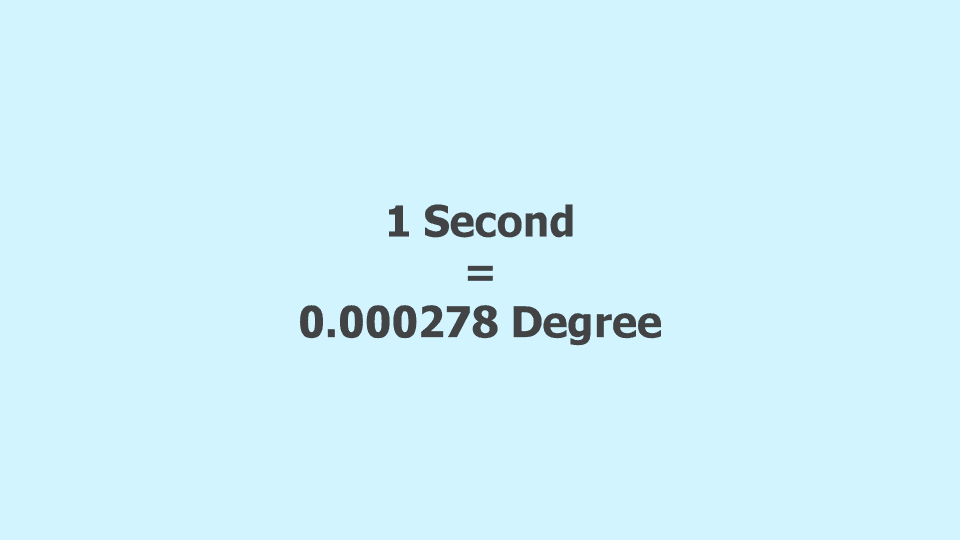Convert Second (′′) to Degree (°)
Please provide values below to convert Second (′′) to Degree (°).Angle Converter
Convert from
Convert to
**Formula:
Discover Other Unit Converters
Updated on December 1, 2025
You can use our Second (′′) to Degree (°) conversion calculator as a reliable and efficient tool to simplify angle conversions. It is designed for professionals, students, and anyone who needs a quick and accurate result. Conversion of Second (′′) to Degree (°) is crucial in Standard timekeeping related measurements. You can avoid the risk of manual calculation errors and save valuable time using our Second (′′) to Degree (°) converter.About Second (′′) to Degree (°) Conversion Calculator
Written By Nadiba Rahman
Nadiba Rahman
Reviewed by Mrinmoy Roy
Mrinmoy Roy
Share This Post
URL copied!
Relation Between Second (′′) and Degree (°)
Let me explain to you about the relation between Second ′′ and Degree (°) first before moving to the conversion process. Because it’s essential to grasp what these units represent.What is Second (′′)?
A second is the base unit of time in the International System of Units (SI). Second (′′) is a unit of angle measurement which is commonly used in Standard timekeeping. Seconds are defined by the vibrations of cesium-133 atoms in atomic clocks. They form the foundation for all larger units of time, like minutes and hours. Seconds are used in everyday life and in precise scientific measurements. They are critical for synchronization in technology, navigation, and communication systems..What is Degree (°)?
Second (′′) is another unit of angle measurement that is used in Geometry, Navigation. A degree is a unit of measure for angles, representing 1/360th of a full rotation.. Seconds are defined by the vibrations of cesium-133 atoms in atomic clocks. They form the foundation for all larger units of time, like minutes and hours. Seconds are used in everyday life and in precise scientific measurements. They are critical for synchronization in technology, navigation, and communication systems..How to Convert Degree (°)?
The conversion between Second (′′) and Degree (°) follows a simple formula:Second = Second × 0.0002777777777777778
Where, 0.0002777777777777778 is the value that allows you to convert between Second (′′) and Degree (°).
So,
1 Degree = 0.0002777777777777778 Second
And, 1 Second = 1/0.0002777777777777778 Degree

Examples of Converting Second (′′) to Degree (°)
To convert any value from Second (′′) to Degree (°), simply multiply the amount of Second (′′) by the conversion factor:1 Degree = 0.0002777777777777778 Second
For example, if you want to convert 5 Second into Degree and the conversion factor is 0.0002777777777777778, then:
5 Second = 5 x 0.0002777777777777778 Degree
Second (′′) to Degree (°) Conversion Chart
Here’s a quick reference chart for common conversions between Second (′′) and Degree (°)| Second (′′) | Degree (°) |
|---|---|
| 10 Second (′′) | 0.002777777777777778 Degree (°) |
| 20 Second (′′) | 0.005555555555555556 Degree (°) |
| 30 Second (′′) | 0.008333333333333333 Degree (°) |
| 40 Second (′′) | 0.011111111111111112 Degree (°) |
| 50 Second (′′) | 0.013888888888888888 Degree (°) |
| 60 Second (′′) | 0.016666666666666666 Degree (°) |
| 70 Second (′′) | 0.019444444444444445 Degree (°) |
| 80 Second (′′) | 0.022222222222222223 Degree (°) |
| 90 Second (′′) | 0.025 Degree (°) |
| 100 Second (′′) | 0.027777777777777776 Degree (°) |
How 1 Second (′′) Converts to Other angle Units
See the relation between Second (′′) and other angle related measurement units:| 1 Second(′′) | 0.000309 Gon |
| 1 Second(′′) | 0.000309 Grad |
| 1 Second(′′) | 0.004938 Mil |
| 1 Second(′′) | 0.016667 Minute (′) |
| 1 Second(′′) | 0.000012 Point (pt) |
| 1 Second(′′) | 0.000005 Radian (rad) |
| 1 Second(′′) | 0.000005 Revolution (rev) |
| 1 Second(′′) | 0.000278 Sextant (sext) |
| 1 Second(′′) | 0.000046 Turn |
Features of Our Second (′′) to Degree (°) Conversion Calculator
Our Second ′′ to Degree (°) converter is more than just a basic converter. Here's what makes it stand out:Output Precision Control
You can control how precise your conversion results are. From settings, you can adjust decimal places from 0 to 12 places.Customizable Rounding Options
You can control the output rounding options based on your necessity. You can turn the rounding mode on or off, and select between Ceiling or Floor rounding to match your needs.Multiple Number Formats
Display your results the way you want:- Standard format (e.g. 12.345245)
- Scientific notation (e.g. 1.23452e+1)
- Engineering format (e.g. 1.23452 × 10^1)

